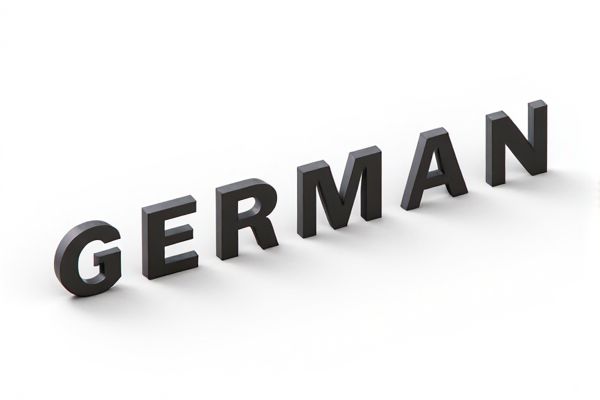
Discover unique and authentic German place names with our online random generator tool designed for creative projects, storytelling, and travel inspiration. Customize your search to find names that reflect specific regions, historical influences, or cultural nuances of Germany. Experience the convenience of instantly generating memorable and meaningful place names that add depth and authenticity to your work.
Online tool for random german place name generator
We have prepared a few samples for a random German place name generator for you to use and randomize. You can also enter your own list to customize the results. With a single click, you will receive a randomized list and one value to use immediately.Data Source
Single Result
Multiple Results
Introduction to Random German Place Name Generators
Random German place name generators create authentic-sounding names by combining common German linguistic elements such as suffixes like "-bach," "-dorf," and "-burg." These tools use algorithms based on phonetics and historical naming patterns to generate unique town or village names for creative writing, gaming, or map design. By reflecting genuine German morphology and cultural naming conventions, these generators provide an efficient way to produce believable geographic names.
Features of Effective German Place Name Generators
Effective German place name generators incorporate authentic linguistic patterns and regional dialects to produce realistic and culturally accurate names. These tools utilize extensive databases of Germanic root words, suffixes, and prefixes to ensure diversity and historical relevance. Advanced generators often include customizable parameters allowing users to specify features such as length, phonetic style, and geographic context for tailored results.
Linguistic Patterns in German Place Names
German place names often exhibit distinct linguistic patterns characterized by suffixes such as "-berg" (mountain), "-dorf" (village), and "-hausen" (houses), which reflect geographical features or historical settlements. A random German place name generator typically combines these morphemes with common roots like "Schwarz" (black) or "Neu" (new) to create authentic-sounding locations. Understanding these linguistic elements enhances the realism and cultural accuracy of generated names in applications ranging from gaming to storytelling.
Popular Uses for Generated German Place Names
Generated German place names are widely used in creative writing and game development for authentic-sounding settings that enhance immersive storytelling. These place names assist filmmakers and role-playing enthusiasts in constructing believable fictional worlds reflecting German culture and geography. Marketing teams also utilize such generators to craft distinct brand identities or product names inspired by German locales.
Customization Options in Name Generators
Customizable random German place name generators allow users to tailor parameters such as regional dialects, historical periods, and linguistic patterns to create authentic and unique names. Options often include adjusting syllable counts, prefixes, and suffixes to match specific Germanic language roots or cultural influences. These customization features enhance creativity and ensure generated names fit targeted storytelling or gaming environments accurately.
Integrating Regional Dialects and Variations
A random German place name generator that integrates regional dialects and variations enhances cultural authenticity by incorporating linguistic nuances from Bavaria, Saxony, and Swabia. Utilizing local phonetic patterns and suffixes like "-dorf," "-tal," or "-berg" tailors generated names to reflect specific geographic and historical contexts. This approach enriches user experience by producing diverse and believable place names rooted in Germany's rich dialectal landscape.
Unique German Suffixes and Prefixes for Place Names
A random German place name generator leverages unique German suffixes such as -dorf, -berg, -tal, and -hausen to create authentic-sounding locations. Common prefixes like Ober-, Unter-, Neu-, and Alt- add geographical or historical context, enhancing the realism of generated names. Understanding these linguistic elements helps produce convincing and culturally relevant German place names for creative projects.
Online Tools for Generating German Place Names
Online tools for generating German place names utilize algorithms based on linguistic patterns, phonetics, and historical toponymy data to produce authentic-sounding names. These generators enable users to customize parameters such as region, suffixes, and dialect influences to create unique or plausible German town and village names. Leveraging extensive databases of German linguistic components, these platforms support creative projects, gaming, and storytelling by providing rich and culturally relevant toponymic content.
Inspiration Sources for Authenticity
Random German place name generators draw inspiration from historical regions, linguistic roots, and cultural elements to ensure authenticity. They incorporate common suffixes such as "-dorf," "-burg," and "-heim," reflecting traditional German settlement patterns and architectural influences. By analyzing geographic features, local dialects, and historical records, these generators produce names that resonate with genuine German heritage and regional identity.
Tips for Choosing the Best Generator
To choose the best random German place name generator, prioritize tools that offer authentic linguistic elements such as accurate use of German phonetics and regional suffixes like "-burg" or "-stadt." Look for generators with customizable options, allowing users to specify themes, historical periods, or dialects to enhance relevance and creativity. Ensure the generator has positive user reviews indicating reliable randomness and a diverse range of unique place names to avoid repetition.
 azrandom.com
azrandom.com